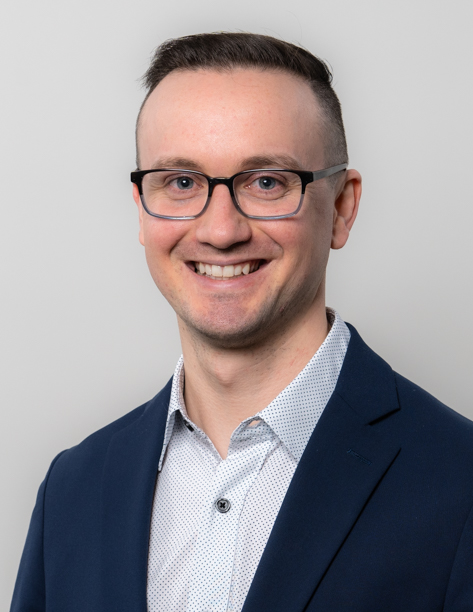
|
Cory A. Brennick, PhDAssistant Professor in Residence
Pronouns:
He/Him
|
|||||||||||
My passion for cancer research stems from the early work starting in the 1940’s by Gross, Prehn and Main, and the Klein’s work that clearly demonstrated that an immunization with tumor cells provides complete concomitant immunity against a subsequent tumor challenge. The recent scientific advancements in genomics and immunology have begun to identify the factors that contribute to this complete immunity. Yet, not a single therapy has proven strong enough to show the same highly specific protection to a subsequent tumor challenge as whole tumor cell immunization. This gap in our knowledge is where my research interests reside.
| Degree | Institution | Major |
|---|---|---|
| BS | Clarkson University | Biomolecular Science |
| PhD | UConn Health | Biomedical Science |
Post-Graduate Training
| Training | Institution | Specialty |
|---|---|---|
| Postdoctoral | UConn School of Medicine | Carole and Ray Neag Comprehensive Cancer Center, Department of Immunology, Research Advisor: Pramod Srivastava, MD, PhD |
| Postdoctoral | Yale University | Yale School of Medicine, Department of Immunobiology, Research Advisor: Lieping Chen, MD, PhD |
Awards
| Name of Award/Honor | Awarding Organization |
|---|---|
| Cancer Biology Training Program (CBTP) at Yale | National Cancer Institute/Yale University |
| Trainee Abstract Award | American Association of Immunologists |
| Graduate Student Research Day Oral Presentation Award | University of Connecticut Graduate Program |
My career in cancer immunotherapy began with focusing on somatic mutations that give rise to tumor-specific antigens, or neoantigens. After thoroughly testing hundreds of putative neoantigens, we identified novel criteria that can predict a tumor rejection mediating neoantigen. Furthermore, we characterized the necessary T cell phenotype that mediates this tumor response. The results of the study left us with surprising findings in tumor immunity and more questions than we came in with. These questions lay the foundation for my lab's research.
Another major aspect of my lab is investigating how to overcome the tumor microenvironment’s suppressive abilities. We are investigating the molecules secreted by the tumor microenvironment that inhibit T cell infiltration. Our study revealed a novel target overexpressed by multiple cancers. We have observed an increase in tumor burden and inhibition of T-cell infiltration and function in the presence of this molecule. We are currently unraveling the molecular mechanisms of inhibition of tumor-infiltrating lymphocytes, TIL. Through understanding the mechanisms behind this novel molecule, we can further understand the mechanisms surrounding tumor escape and develop new treatment modalities.
Not accepting lab rotations at this time.
Journal Articles
-
A frameshift-generated cancer neoepitope that controls tumor burden in prophylaxis as well as therapy.
Journal of immunology (Baltimore, Md. : 1950) 2025 Apr;
-
CD8+ T Cell-Dependent Antitumor Activity In Vivo of a Mass Spectrometry-Identified Neoepitope despite Undetectable CD8+ Immunogenicity In Vitro.
Journal of immunology (Baltimore, Md. : 1950) 2023 Nov;211(12):1783-91
-
An unbiased approach to defining bona fide cancer neoepitopes that elicit immune-mediated cancer rejection
The Journal of Clinical Investigation 2021 Feb;131(3):
Book Chapters
-
Neoepitope-Based Cancer Vaccines: Principle and Applications
Advances in Immunology and Immuno-techniques 2024 Nov;37-55
Reviews
-
VISTA: A promising target for overcoming immune evasion in gynecologic cancers.
International immunopharmacology 2024 Sep;138112655
-
Prediction of cancer neoepitopes needs new rules
Seminars in Immunology 2020 Jan;47
-
Neoepitopes as cancer immunotherapy targets: key challenges and opportunities.
Immunotherapy 2017 Mar;9(4):361-371
| Title or Abstract | Type | Sponsor/Event | Date/Year | Location |
|---|---|---|---|---|
| Unbiased testing of several hundred tumor-specific single nucleotide variants of a tumor for protective immunogenicity and CD8+ response reveals surprises | Talk | American Associate of Immunologists Conference | 2018 | |
| Unbiased testing of several hundred tumor-specific single nucleotide variants of a tumor for protective immunogenicity and CD8+ response reveals surprises | Poster | American Associate of Immunologists Conference | 2018 | |
| Defining Neoepitopes that Contribute to Tumor Immunity | Talk | UConn Health Graduate Student Research Symposium | 2017 | Farmington, CT |
| Defining Neoepitopes that Contribute to Tumor Immunity” UConn Health Graduate Student Research Symposium | Poster | UConn Health Graduate Student Research Symposium | 2017 | Farmington, CT |
| Distinct immunological activities of four variants of one mutation-generated neoepitope of a mouse fibrosarcoma | Talk | American Associate of Immunologists Conference | 2015 | |
| Distinct immunological activities of four variants of one mutation-generated neoepitope of a mouse fibrosarcoma | Poster | American Associate of Immunologists Conference | 2015 |
